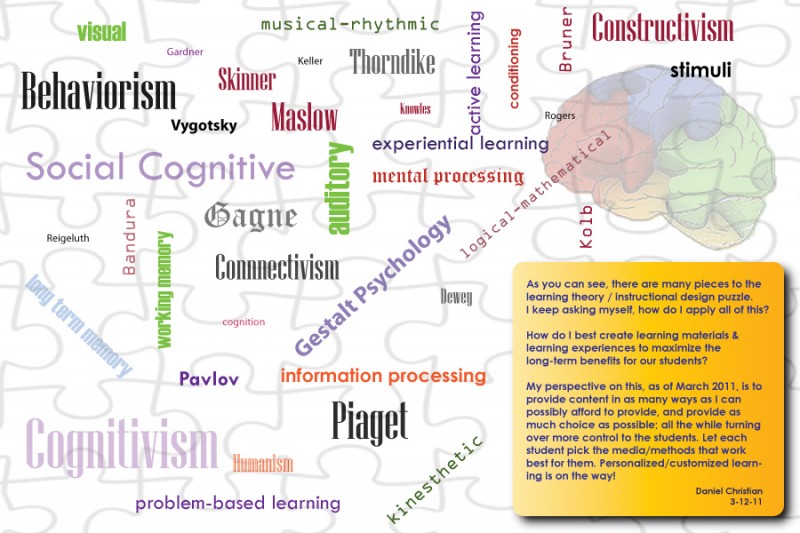From DSC:
In my recent class at Capella University, one of the last discussion board questions asked:
- Do you think learning theory should be more explicit in official discussions of policy?
What a great question! My answer was yes, as it makes sense to me to guide educational reform by what is best for the students…for learning. Hopefully, we can make informed decisions. Though I’ve learned that there is no silver bullet when it comes to learning theories, each learning theory seems to be a piece of the puzzle for how we learn. Graphically speaking:
If viewing the above graphic on the Learning Ecosystems blog (vs. in an RSS feed/reader):
You may need to right-click on the above image and save it, then open it.
Such theories should have a place when policies are drafted, when changes are made. But I don’t often hear reference to the work of Thorndike, Bandura, Vygotsky, Gagne, Kolb, etc. when legislative bodies/school boards/or other forms of educational leadership are exploring future changes, directions, strategies. What is it that these people were trying to relay to us? What value can we gleam from them when we form our visions of the future? How does their work inform our selection of pedagogies, tools, organizational changes?









